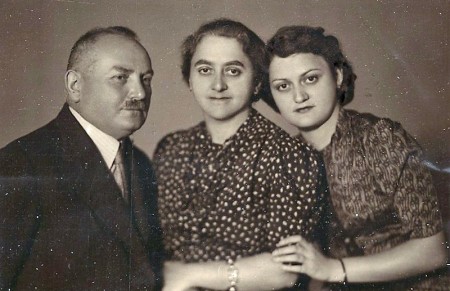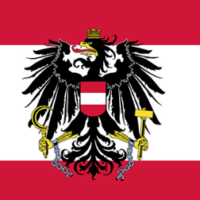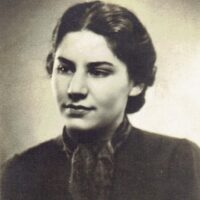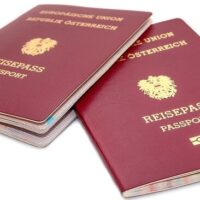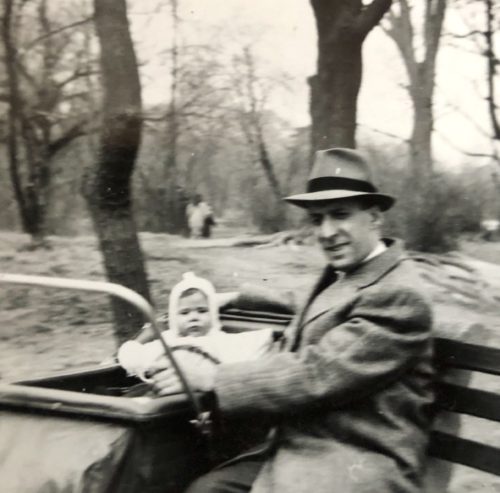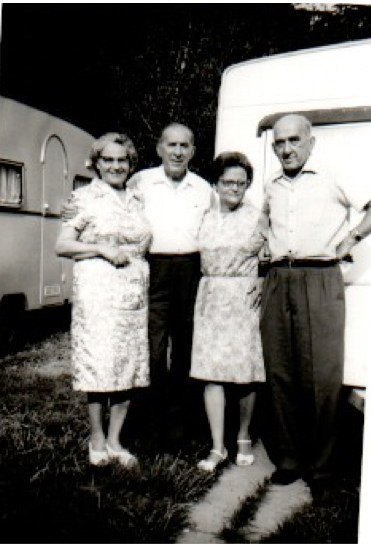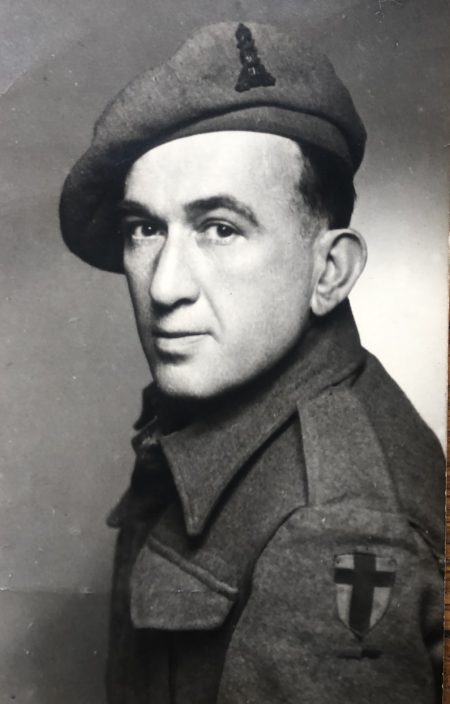Last week, I had dinner with a poet friend whom I hadn’t seen in a long time. The subject of antisemitism came up in the context of a literary festival in Albany where two writers refused to be on a panel with a “Zionist.” I guess I didn’t use air quotes. My friend, who is hearing impaired, didn’t get the inflection, didn’t understand that I was being ironic. He replied, “Yes, our Jewish neighbors are being harassed and they’re not even Zionists.”
Just Say “Jew” Already
My friend is well aware that I am Jewish; he just assumed I wasn’t a Zionist. I don’t blame him. He likes me, and in this past year, Zionism has become a catchall term for everything evil in the world: white colonialism, baby killing, genocide, apartheid, occupation, illegal ethnostatehood…. This is not to get into an argument about the use of those terms to apply to Israel or its supporters. The point is, many people I respect have come to believe the worst about the world’s only Jewish-majority state and its inhabitants, no matter the historic evidence to the contrary.
Finding an excuse to hate Jews is the oldest story in the book, but the enthusiasm with which this one has been deployed since 10/7, the extent of its reach, is dispiriting. My politically aligned friends and I used to share a common language. No longer.

I understand that language changes, that there’s no forcing it back into an outdated mold. In the case of Zionism, however, the linguistic shift is too swift to be organic.
I also believe that words should be defined by the people who are most invested in their meaning, not by their enemies. Take “Anasazi,” a term long used to describe the Pueblo Indians in the Four Corners area of the United States. In the Navajo language, the word means “ancient enemy.” Once that fact became widely known through advances in understanding native languages, “Anasazi” was replaced by “ancestral Puebloans” in the literature referring to them.
In contrast, Wikipedia has literally rewritten the history of Zionism and will not allow any Jewish organizations to edit the text.
If the Jews control the media, we’re doing a really bad job at it.
So, What Is Zionism?
Here is a definition by Alisa Albert, the aforementioned Zionist writer whose panel on “Girls, Coming of Age” (NOT Israel/Palestine) was canceled because two authors refused to appear with her. It’s part of an excellent article published in Tablet:
Zionism is the belief that the State of Israel has the right to exist. Zionism is the belief that the Jewish people (literally aka “Israel”) has the right to self-determination, peace, and safety in our ancestral homeland. Zionism precludes no other peaceful nationalist ambitions or aspirations.
That definition works for me and for the majority of diaspora Jews; it’s been estimated that some 80% of American Jews say “caring about Israel is an important or essential part of what being Jewish means to them.” Do all Jews agree on this definition of Zionism? Of course not. “The people of the book” are notorious for parsing every written and spoken word. But while some very vocal Jews on both ends of the political spectrum disavow any connection with Zionism, it is impossible to deny that Israel is part of Jewish culture and tradition. In the Hebrew Bible, the land of Israel and the city of Jerusalem are both referred to as Zion.You don’t have to be an observant Jew to know this. You only have to attend a seder and hear the wish for “Next year in Jerusalem.” In fact, you don’t need to be Jewish at all. The lament of exile from the Jewish homeland is laid out in Psalm 137 in the King James Bible and the Bob Marley song based on it.
By the rivers of Babylon
where we sat down
and there we wept
when we remembered Zion
Purity Tests and the Sounds of Silence
More to the point, whether or not individual Jews embrace Israel, whether or not we are observant, being Jewish has become a central concern in our lives since 10/7. I’d come to expect antisemitism from the right and I haven’t been disappointed. Donald Trump recently said that if he loses, it’ll be the Jews’ fault. Marjorie Taylor Greene accused “them” of controlling the weather (I wish; we’ve had record heat here in Arizona).
My problem is with the left, my political home. In order to be accepted in many “progressive” circles, Jews have increasingly been called upon to denounce Israel’s actions.
Many sectors of Jewish life have been impacted — on college campuses, for sure. But because I am a writer with a Ph.D. in poetry, my heart has most been hurt by what has been happening in the literary world by purported proponents of free speech.
Here are four examples of the problem in addition to the Albany book festival noted above:
-
- The literary magazine Guernica published, and then retracted, a story by Joanna Chen, an Israeli translator of Hebrew and Arabic poetry, because 10 of its staff members quit in protest. The essay was about Chen’s “experiences trying to bridge the divide with Palestinians, including by volunteering to drive Palestinian children from the West Bank to receive care at Israeli hospitals, and how her efforts to find common ground faltered after Hamas’s Oct. 7 attack and Israel’s subsequent attacks on Gaza.” How dare she present the Israeli perspective!
- PEN, a worldwide association of writers and a leading fighter against book bans, spent this last year debating whether the organization had done enough to condemn Israel, resulting in several writers turning down awards and/or resigning from the organization. Naomi Klein, a Jewish writer known for her outspoken criticism of Israel, suggests that the supposed “Palestine exception” to free speech in the past justifies excluding Jewish perspectives now—because… balance? Margaret Atwood, a former president of PEN Canada, had a different view: “Go ahead, shut down PEN America, put a few heads on pikes,” she said of the group’s critics in an email. “Then burnish your brand and congratulate yourselves on your own purity and righteousness while those who PEN America could have helped — worldwide, at home, and in prison — wither on the vine.”
- A manager at a Chicago bookstore, City Lit, told book club members that they could no longer vote to read Gabrielle Zevin’s best-selling Tomorrow and Tomorrow and Tomorrow, owing to her perceived Zionism. “Perceived” is the operative word; Zevin, who is Korean and Jewish, never publicly discussed her views of Israel. And, as the article notes, “before the current flap, Zevin was among dozens of authors who appeared on a recent viral online list titled “Is your fav author a Zionist???” — with boycotts recommended against authors for whom the answer was yes, such as Zevin.” That begs the question: if she were a self-proclaimed Zionist, does it follow that her books should be boycotted?
- This year’s conference of the AWP (the Association of Writers and Writing Programs) not only foregrounded anti-Israel discourse in its keynote speech but also did nothing about a protest in “which blatant antisemitic signs and chants [were] allowed to disrupt the bookfair (the central shared space of the conference) for two hours. These included chants of “from the river to the sea” and signs with a map of Israel covered in a large black X.”
I have also heard about agents and publishers who don’t want to deal with Jewish writers because they are “too controversial.”
I am genuinely perplexed. Thousands of Israelis took to the streets to protest Netanyahu. Many of the young people massacred on October 7 were peace activists, including Hersh Goldberg-Polin, an American citizen who was among the hostages murdered. Shunning Israeli and American Jews would be like excluding Americans from literary conferences and panels when Trump was elected and instituted a ban on Muslims entering the country.
Where is the outrage among well-known free-speech proponents besides Margaret Atwood?
One of my earlier questions in response to the events of 10/7 six months ago was “Who would hide me?” No longer. Now many of the Jewish writers I know are, in effect, hidden, our voices suppressed because we are failing to take or pass McCarthy-style purity tests.
A year out from 10/7, the better question is, “Who beside Jews will speak up for us?” So far, the silence in the literary community has been deafening.


